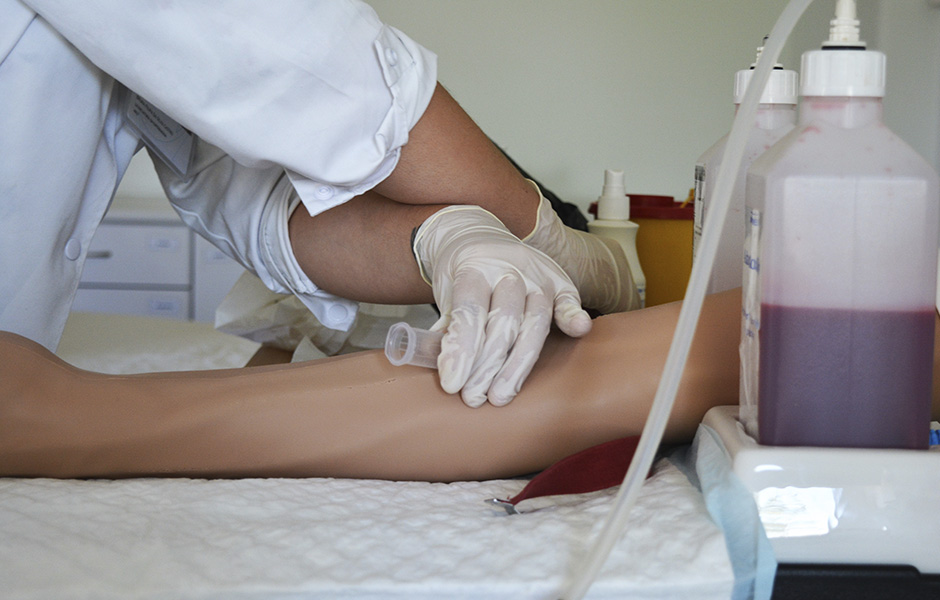A new study authored by researchers from CINTESIS – Center for Health Technology and Services Research , analyzed the levels of positive mental health of more than two thousand Nursing students in Portugal and in Spain, and found some worrying data that may constitute barriers to the future of this professional practice.
The study, entitled “Levels of Positive Mental Health in Portuguese and Spanish Nursing Students”, published in the Journal of the American Psychiatric Nurses Association, was developed by Carlos Sequeira, José Carlos Carvalho, Amadeu Gonçalves and Maria José Nogueira, all of them researchers from CINTESIS/Nursing School of Porto (ESEP), simultaneously with Teresa Lluch-Canut and Juan Roldán-Merino, from the University of Barcelona.
The authors interviewed 2,238 Nursing students, with a mean age of 21.5 years, with regards to six dimensions that are part of the Positive Mental Health Questionnaire (PMHQ): personal satisfaction, pro-social attitude, self-control, autonomy, problem solving / selfupdate and interpersonal skills.
Although the results generally indicate that students have positive mental health, some dimensions have been assessed clearly below expectations, especially given the type of course of studies they are following.
Thus, 27% of students admitted they did not like themselves and 37% often experienced a sense of meaninglessness. Although globally unselfish and predisposed to help, 47% of the students reported some difficulties in accepting ideas different from their own and 40% revealed difficulties in listening to the problems of others. About 30% also admitted having difficulties in giving emotional support, in understanding other people’s feelings, and in relating to professors.
“Some variables present disruptive indicators, such as personal satisfaction and interpersonal relationships, demonstrating a significant lack of self-esteem. In addition, approximately half of the students show difficulties in establishing relationships with others, more than half are not optimistic about the future and a considerable number feels insecure to make decisions,” they say.
For the CINTESIS/ESEP researchers, these negative results “jeopardize students’ autonomy, personal growth, well-being and academic success.” Worse than that, “the lack of satisfying interpersonal relationships, pessimism and difficulty in making decisions are psychosocial factors that negatively affect their ability to develop clinical skills.”
Likewise, the difficulty in listening to others, accepting different ideas, creating empathy and understanding others’ feelings can constitute a “barrier to professional practice.”
The authors believe that these results should be interpreted as a “valuable contribution to teaching”, since they make it possible to identify the weaknesses of students and point out priority areas for intervention in Nursing schools, both in Portugal and Spain.
“The main idea is to raise the awareness of the educational institutions about the importance of promoting mental health in young people, especially in relation to the management of emotions, self-control, interpersonal relationship and personal satisfaction, and thereby help build young people more resilient, healthier and more satisfied,” concludes Carlos Sequeira.
This group of researchers has also ongoing work on monitoring the mental health of Brazilian Nursing students and students from other courses of studies, both in the health area and in other areas. Preliminary data are “overlapping”, which is seen as “worrying” and “a new reality” indicator. The final results will be announced shortly.

